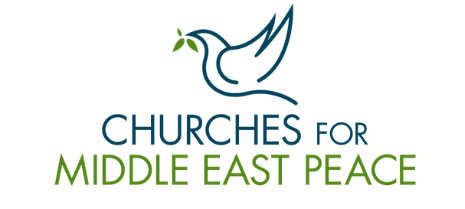A Letter from Churches for Middle East Peace
Dr. Mae Elise Cannon wrote a letter to supporters of Churches of Middle East Peace on June 23, 2023.
Dr. Mae Elise Cannon wrote a letter to supporters of Churches of Middle East Peace on June 23, 2023.
The following article was published in the July-August 2023 issue of NewsNotes.
I woke up almost every morning this past week and heard distressing news from Palestine and Israel. It is hard not to be discouraged. Below highlights much of the ongoing trauma and tragedy—especially in the occupied Palestinian territories (oPt).
But in the midst of such news—we must remind ourselves that even when we cannot immediately see tangible results, our work continues to provide critical education, advocacy, and engagement in response to violence and oppression. We are motivated by our faith not to give up hope but to remain steadfast and diligent.
I continue to say… “Despair is the luxury of the privileged.” If our friends, colleagues, and partners in the Middle East continue to remain in situations of conflict and as they continue to pursue peaceful responses to human rights violations and violence—who are we to give up hope?
While we remain committed to our work, including outreach to churches and Christians across the United States and education and advocacy in Washington, D.C., several things have happened in the region that have captured our attention. We should be aware, in prayerful reflection, and committed to strategically responding to these current realities. We hope that you will join CMEP in taking action!
On June 6, we had news from the Palestinian village of Nabi Saleh near Ramallah about the shooting and the killing of two-and-a-half-year-old Mohammed al-Tamimi. I have spent a lot of time in Nabi Saleh over the years and witnessed the community’s engagement in social resistance and the high cost the family has paid of injuries, trauma, and even death in their efforts to resist the effects of settlement encroachment and occupation.
Last year, we wrote about the “Cost of Change” and the movements of social resistance in Palestine, including Nabi Saleh. Last November, Churches for Middle East Peace (CMEP) issued a call for the protection of children and the violence to stop. From the start of this year (as of June 6th), 27 children in Palestine were killed due to the ongoing occupation. Just this week, on Monday, June 17, two teenagers were killed after the incursion into Jenin in the West Bank—a 14-year-old girl, Sadil Ghasan Ibrahim Naghnaghieh, and a 15-year-old boy, Ahmed Saqr. UNRWA published a statement, “Deplores the Killing of Two UNRWA Students in Jenin Refugee Camp.”
We have seen the cycle of violence continue this week, as four Israeli settlers were killed near the Eli settlement in what appeared to be a response to the Jenin incursion. These deaths were then followed by brutal settler rampages in Turmus Ayya and Urif, which resulted in the death of a young Palestinian father and the injuries of 12 Palestinians. Denouncing the riots, an Israeli Defense Forces (IDF) spokesperson said about the settler attacks that the incident “creates terror and escalation, and takes the population that isn’t involved in terror and pushes it [toward extremism].”
On June 21, an Israeli drone strike killed three Palestinians who were allegedly involved in a shooting incident just hours after the rampage on Palestinian villages. This week saw the first use of air warfare in the West Bank since the second intifada two decades ago. In addition, the Israeli government responded to the Eli settlement attack by saying they will move forward with expanding the settlement, and we anticipate this will only add to the escalations and perpetuate this cycle. While the U.S. has identified settlement expansion as an “obstacle to peace,” there seems to be no deterrent to further expansion and the subsequent human rights abuses of Palestinians living in the occupied Palestinian territory.
In addition to the increased violence, the Israeli government and Prime Minister Netanyahu announced this week that they will continue with the proposed overhaul of the judicial system. Earlier this year, the proposed changes provoked global demonstrations, and tens of thousands of Israelis took to the streets. These “active steps” in the proposed judicial overhaul have been criticized as eroding Israeli democracy. Palestinian activists have said the movement is about maintaining democracy “only for Jews.”
What does all this mean? Violence begets violence. Unless the violence of the occupation of the Palestinian people is brought to an end, further war and destruction seem inevitable. CMEP supports a different way—nonviolence and activism in response to injustice. That is why those of us continuing to call and work for peace cannot give up.
Faith in action
Tell Congress to support the Palestinian Children and Families Act at https://mogc.info/HR3103

